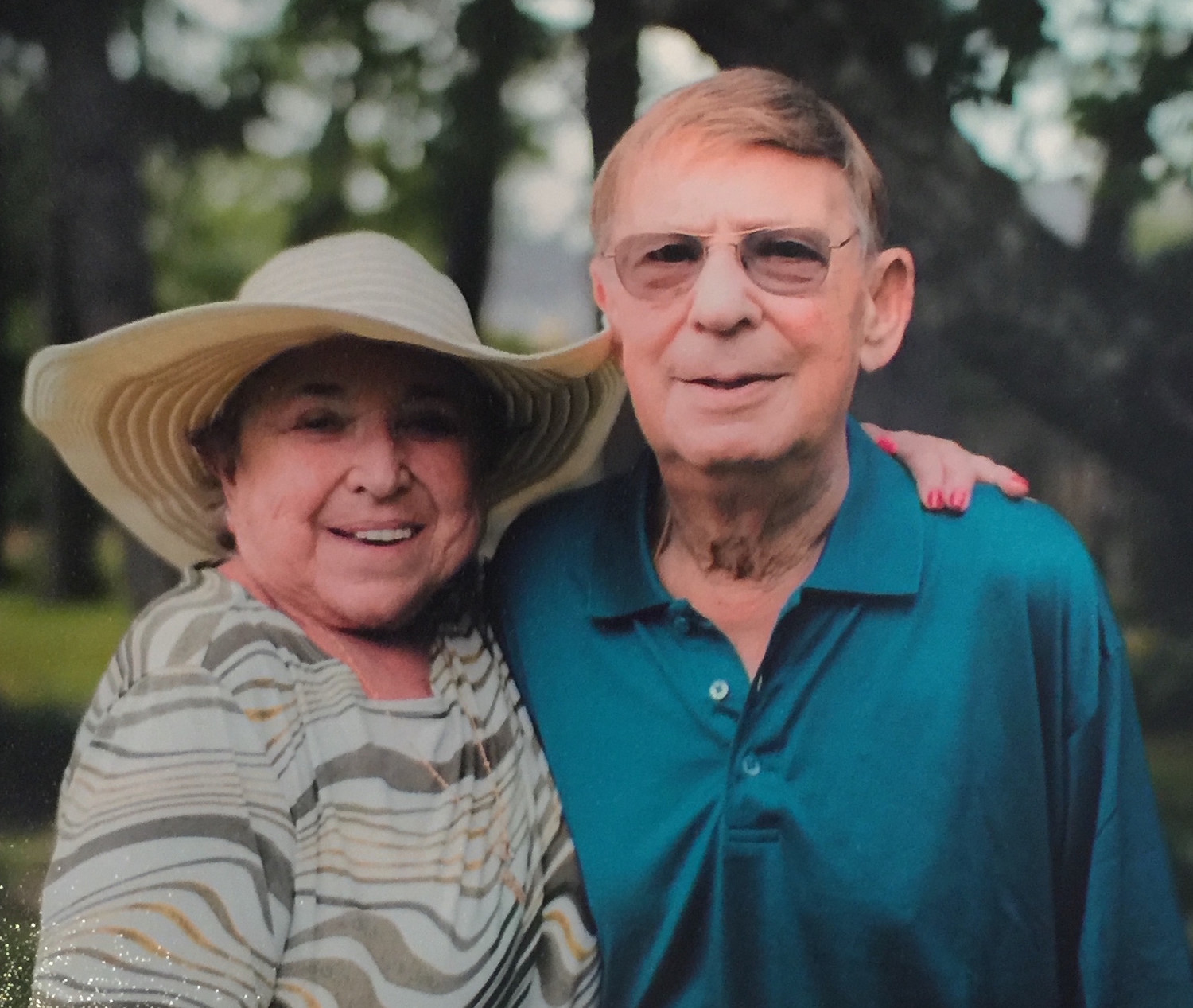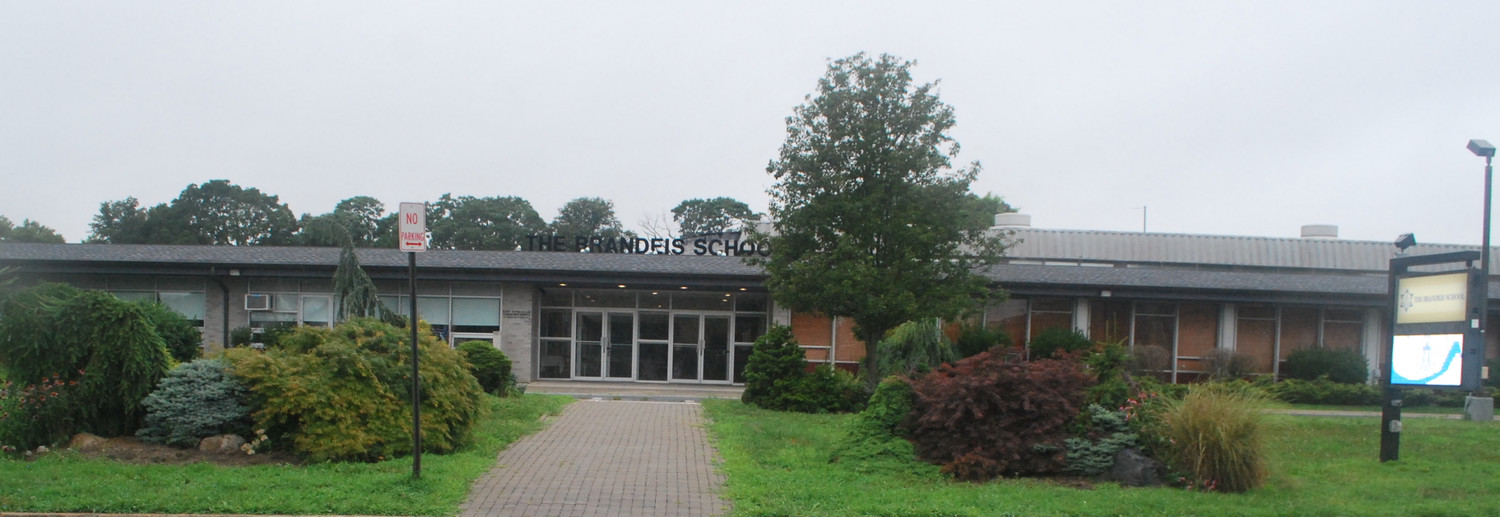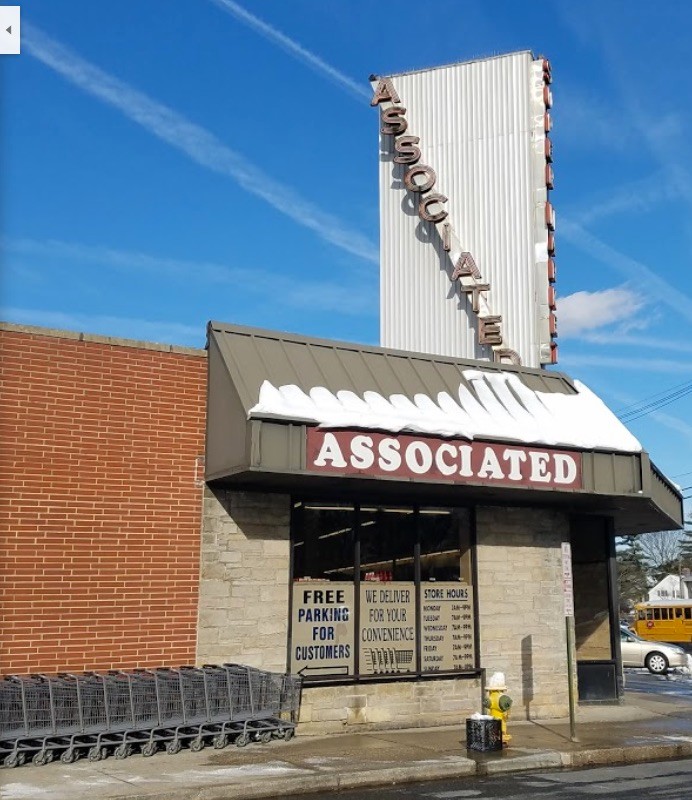Remembering ‘our grandpa’
Brandeis dedicates its Lawrence campus to Harry Laufer
Posted
A survivor of the Holocaust who went on to become a successful businessman and a champion of Jewish education before he died in 2016 will have his name enshrined in perpetuity when the Brandeis School names its Lawrence site, which includes Rambam Mesivta High School, the Harry Laufer Jewish Educational Campus.
“He helped everyone in the school — student, teacher,” said Raz Levin, Brandeis’s head of school. “He wasn’t just involved financially, but physically. He loved to walk in the hallways. He was our grandpa.”
Brandeis is a Jewish day school that educates children in nursery school through eighth grade. Its current enrollment is roughly 225 and growing, school officials said.
World War II cast its shadow over Laufer’s youth. When he was 7, the Germans rolled into Poland. His family lived in Belz, a Jewish community that became a border town when the Germans and Russians divided Poland. A majority of the Jews ended up on the Soviet Union side of the border, while older and sick people were trapped on the German side in a home for the elderly.
“[His] helping to smuggle food to the German side was one of the stories he told,” said Pamela Laufer, one of Harry’s four children, who became emotional as she related the tale while guiding this reporter through a book that was put together after her father’s death at age 83. “They were left to die, and he helped people he knew.”
The family’s fortunes took a turn for the worse when Harry, his mother and father — Mela and Yaakov — and three siblings were taken to Siberia in 1939 to be interned as “enemies of the state.” Mela caught her right heel in barbed wire and never walked properly again. On the way to Siberia, Harry’s younger brother and sister died. The remaining family members were in a labor camp when the Soviets reached an agreement with the exiled Polish government, and the camps were closed. Now in exile, however, the former prisoners had to fend for themselves.
After Russia
Unable to return to their homeland, the family sought familiar surroundings, and headed west to Uzbekistan between 1943 and ’44. Harry was placed in a Russian-language orphanage by his refugee family. Most Jewish boys gleefully prepare for their bar mitzvah, but Harry’s was a clandestine affair: His father snuck into the orphanage, placed a tallis, or prayer shawl, over Harry’s head and recited a few pertinent blessings.
The family returned to Poland as the European phase of the war drew to a close, but the possibility that they could be killed kept them from reclaiming their home. Jewish displaced-persons organizations helped them get to Germany, where Harry began studying electrical engineering in Munich.
Showing the work ethic and entrepreneurial spirit that helped him become a success, he bought American cigarettes from U.S. military personnel who purchased them at discounted prices and sold them for a healthy profit. An interest in Israel began to take root through his involvement in Zionist youth groups, but his parents’ health kept the family from emigrating to the Jewish state.
With the help of the Hebrew Immigrant Aid Society, Harry, his mother and father and his older brother, Jack, arrived in New York City and settled in Brooklyn in 1950. “The story goes, he and a friend got jobs in a hat factory and were told to clean the toilets,” Pamela said. “His friend didn’t like that, but my father cleaned the toilets, then became the highest-output piecework laborer.”
Life in America
Also in 1950, Harry met Joan Goldberg at a Sweet 16 party in the Bronx, when he was 18 and she was 14, Joan recalled as she sat in her Hewlett Bay Park home. “He was a man who never gave me a second look.” When an even older man, Harry’s friend Sydney, 27, asked Joan out, Harry called her. “We lived in the projects, on welfare, with no phone,” Joan recounted. “A neighbor, Mrs. Yablonsky, would bang on her ceiling with a broom when he called.”
Married five years later, the couple settled in Canarsie. Harry and Jack had gone into the wholesale food business in Bushwick, using the money their mother had saved from Harry’s work at the hat factory. The business was successful, but the brothers went their separate ways. With a partner, Harry took over and developed the Associated Foods brand, which grew to 250 stores and roughly $500 million in annual revenue. He retired as co-president in 2014.
“His visionary approach and background in the industry helped Associated Foods become one of the largest retail food markets in the United States,” company officials said in a statement after his death. “Harry Laufer was a pillar in the community, both professionally and personally. He will be missed by his family, friends and associates.”
In addition to Pamela, the Laufers had three other children, Francine, Adam and Jessica. Pamela and Jessica attended Brandeis. Joan now has 14 grandchildren and two great-grandchildren.
As a passionate devotee of Jewish community causes and Jewish education, Harry served on the board of the Jewish Theological Seminary in Manhattan, and was president and chaired the board of the Hewlett-East Rockaway Jewish Centre. He also served on the Brandeis board, and helped support the school from 1979 until his death. He played golf at the Seawane Country Club in Hewlett Harbor.
Joan did her part as well, serving on Brandeis’s Parent-Teacher Association. “For Harry it was always about Jewish education — this is what he was about,” said Stu Kotler, a co-chairman of Brandeis’s board, adding that the Laufer family has “donated significant dollars over the years and continue to be supporters” of the school.
A dedication ceremony is planned for Sept. 16. “This means an awful lot,” Joan said. “Whoever wanted to be educated in the Jewish religion, he helped,” she added of her late husband. She recalled that an electrician who did work at their home never gave them an invoice, intimating that his children’s tuition had been covered by Harry.
Report an inappropriate comment
Comments

 46.0°,
A Few Clouds
46.0°,
A Few Clouds 









